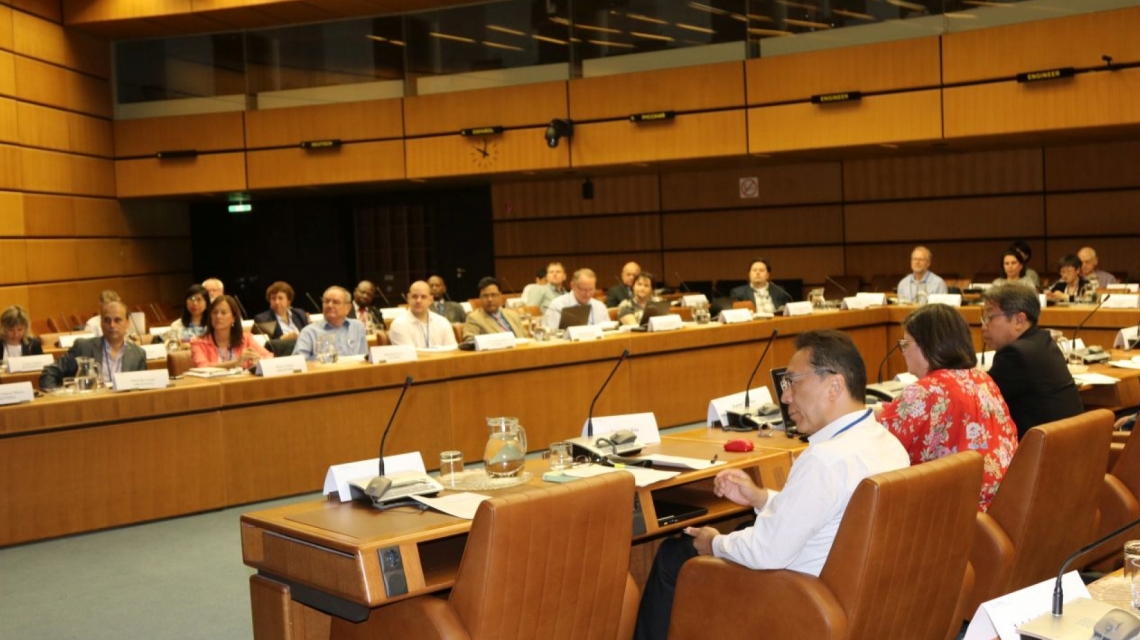Promoting cooperation through education networks is vital for preserving and managing nuclear knowledge, and building on these partnerships is crucial for meeting common challenges and developing new education and collaboration mechanisms, experts agreed at a recent IAEA Technical Meeting on Educational Networks.
At the meeting, held from 1 to 5 July in Vienna, 47 participants from 34 countries and four international organizations, including representatives from existing nuclear education networks and educational institutions, reviewed the status of these networks and discussed areas for potential future collaboration, and considered how to further optimize communication.
Nuclear education networks facilitate the sharing of educational resources at the national, regional and interregional level to help countries develop and maintain well qualified human resources in the various fields of nuclear science and technology. These networks foster cooperation in areas such as the creation of outreach materials to attract the next generation to nuclear careers and increasing public awareness of the benefits of nuclear technology, as well as curricula development for higher education programmes.
“This pioneering technical meeting included representatives from all nuclear education networks,” said Maria Elena Urso, a Knowledge Management Specialist at the IAEA and scientific secretary of the meeting. “They were able to not only share their experience and discuss common challenges, but also to form new bilateral collaborations, including at the institutional level.”
The IAEA fosters four nuclear education networks: the Asian Network for Education in Nuclear Technology (ANENT), the African Network for Education in Nuclear Science and Technology (AFRA-NEST), the Latin American Network for Education in Nuclear Technology (LANENT) and the Regional Network for Education and Training in Nuclear Technology (STAR-NET). Other nuclear education networks include the European Nuclear Education Network (ENEN) as well as other networks operating at the national level.
In addition to organizing meetings and technical cooperation projects in support of these networks, the IAEA has developed a Cyber Learning Platform for Network Education and Training (CLP4NET), an online platform which includes a database of educational resources and tools to support both self-study and instructor-led courses.
“Argentina’s National Atomic Energy Commission (CNEA) operates LANENT’s online education portal for the development of e-learning courses and shares educational materials,” said Monica Llanso, a lawyer at CNEA who attended the meeting. “Our national project ‘Nucleando’, which provides teachers with tools for teaching nuclear physics and various applications of nuclear technology, has been offered to be implemented throughout Latin America and the Caribbean.”
Oumar Ka, a professor at Cheikh Anta Diop University in Senegal and Senegal’s national coordinator for AFRA-NEST, said that the technical meeting highlighted the importance of utilizing digital tools to further develop AFRA-NEST. “Regional meetings are not always feasible in Africa, and so e-learning tools can be a very valuable resource for us to continue to expand the network and collaborate remotely,” he said. “Initiatives to implement such tools within AFRA-NEST will move forward in the coming months.”
Representatives from each of the networks agreed to exchange information about events of common interest and to promote initiatives of other networks. A common action plan with guidelines on communication, human resource development, the use of digital tools and outreach activities was updated and agreed upon during the meeting and will guide synergistic network activities in the near future.






